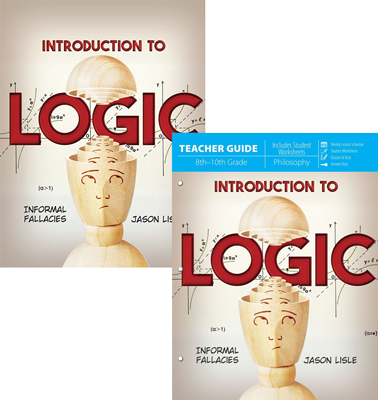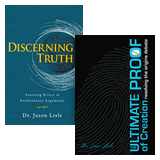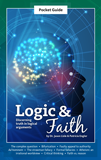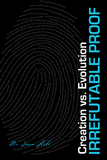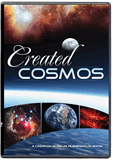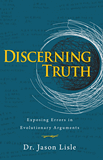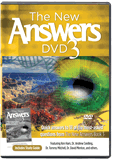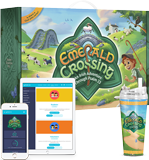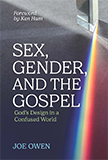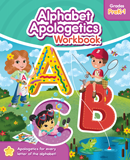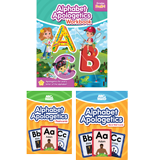Introduction to Logic Curriculum Set
Informal Fallacies
- Format: Pack
- Ages: Teens – Adults
- Publisher: Master Books
- Published: 2018
- SKU: 40-1-523
- ISBN: 9781683441595
This Introduction to Logic course will both challenge and inspire high school students to be able to defend their faith against atheists and skeptics alike.
What’s Included $77 value
-
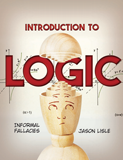 Introduction to Logic
Introduction to Logic
In this Introduction to Logic course book, teens will learn about logic and the Christian worldview, the biblical basis for the laws of logic, if faith is contrary to reason, informal logical fallacies, and more.
Buy Individually -
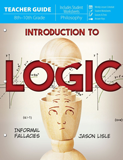 Introduction to Logic Teacher Guide
Introduction to Logic Teacher Guide
This teacher guide is the vital resource for grading all assignments from the Introduction to Logic course, and includes worksheets, practice sheets and special chapter reviews.
Buy Individually
Details
Welcome to the World of Logic!
This Introduction to Logic course will both challenge and inspire high school students to be able to defend their faith against atheists and skeptics alike.
- A full-year course that will increase a student’s ability to refute the untruths that evolutionists claim as fact.
- Includes both a student text and a separate teacher’s guide with all necessary quizzes and tests.
- Teaches methods that are reliable and effective in defending truth.
Because learning logical terms and principles is often like learning a foreign language, the course has been developed to help students of logic learn the practical understanding of logical arguments. To make the course content easier to grasp, the schedule provides worksheets and practice sheets to help students better recognize logical fallacies, as well as review weeks for the quizzes and the final. The practice sheets in the back of the book offer practical study for both the final exam and for actual arguments you might encounter online or in the media. The practice sheets used in review before the end of the course come from all of the chapters and help students prepare for the final exam.
Another way to help understand and memorize new terms is by creating flash cards or memorization cards. It should be noted that this is a part of nearly every week of study on the schedule provided. As new concepts are added each week, it is suggested that this review time grow to allow review of older concepts and the addition of the new terms. Students can make their own flashcards on 3 x 5 cards (the term on one side and the definition on the other), or they might find a flashcard app that can be used from a phone or computer.
Logic is the study of the way God thinks. So, by studying logic, you are actually doing theology! This is a great point to emphasize for students who fancy themselves theologians, but are not terribly excited about logic. Students planning on going into ministry better learn something about the mind of the God they serve. Students of science better learn something about God’s mind since it is God’s mind that controls every atom in the universe. Knowing how their Creator thinks will give them an edge over secular students. Emphasize how awesome it is that we are learning about God’s mind! It would be wonderful to learn how Leonardo da Vinci’s mind worked, or Albert Einstein’s. How much more awesome to learn about the mind of God!
Studies have shown that students learn far more effectively and retain information better if they are exposed to it in short bursts over a long period of time rather than in a long burst of short duration. The student who studies a topic for 40 hours in one week will not retain it nearly as well in longterm memory as a student who studies for a total of 40 hours spread out over two months. For this reason, it is helpful to occasionally ask the student to recall information learned in previous chapters. This reinforces the topic, helps with memorization, and may help the student to think about the older material in light of the newer material. For these reasons and more, we stop and review fallacies covered in previous chapters.
More by authors
Dr. Jason Lisle
Recommended Resources

Answers in Genesis is an apologetics ministry, dedicated to helping Christians defend their faith and proclaim the gospel of Jesus Christ.
- Customer Service 855-513-0225
- © 2026 Answers in Genesis
